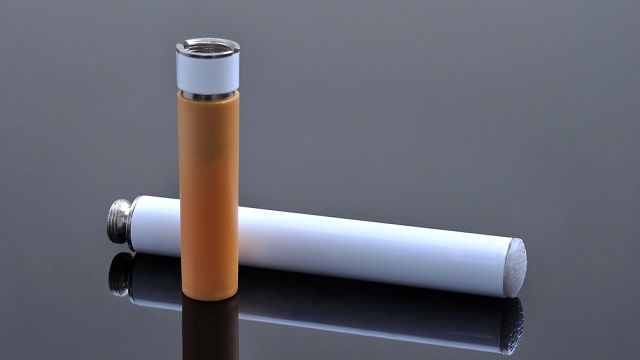Kecia Lynn
Kecia Lynn has worked as a technical writer, editor, software developer, arts administrator, summer camp director, and television host. A graduate of Case Western Reserve University and the Iowa Writers' Workshop, she is currently living in Iowa City and working on her first novel.
In case you were holding out any hope: Students at the University of Leicester have calculated exactly how long it would take to teleport a human from Earth to a point in circular orbit. The short answer: A really, really, really long time.
At this week’s Black Hat conference, security expert Fran Brown plans to demonstrate technology that can clone any passive RFID badge within a three-foot radius.
Influenced by a study showing that “range anxiety” was a big barrier between consumers and electric cars, the German automaker decided to make sharing of a traditional car available for long trips.
Despite the growing number of mobile payment technologies available, and the uptick in users in both Europe and Japan, many Americans are either unaware of them or concerned about their security.
Partners HealthCare’s new system may be one of the first in the nation to wirelessly populate official electronic health records with data collected by an increasing number of remote home monitoring devices.
Veebot’s automated system can correctly locate a suitable vein about 83 percent of the time, which makes it about as good as a human technician. The company is shooting for 90 percent accuracy before beginning clinical trials.
University of California-San Diego researchers have created a wearable biosensor that measures lactate levels in sweat in real time. Future iterations could transmit data to a smartphone app via Bluetooth.
Ford engineer Zach Nelson’s 21st-century creation combines hardware and software to let the newbie driver know when it’s time to shift gears.
Starting this fall, the PreCheck program — which basically expedites participating members through airport security — will be open to any US citizen who’s willing to pay $85 and endure a detailed application process.
The sensor knows: Taiwanese researchers have created a prototype of an implantable device that may one day give dentists and others insights on patients’ oral habits and hygiene.
Since a Tokyo-based PR firm announced the campaign earlier this year, more than 3,000 Japanese women have signed up. There are some conditions, though: Participants must be over 18, relatively active online, and dedicated miniskirt wearers.
Developed by Raytheon, the helium aerostats will hover at 10,000 feet and can see up to 320 miles in any direction. Unlike ground-based systems, they can provide warnings to military personnel minutes, rather than seconds, in advance.
The pocket-sized breathalyzer uses sensors to measure and calculate acetone levels — a key indicator of fat breakdown — and sends data to a smartphone app within 10 seconds.
If it runs Android, you can install an app, created by designers at the University of California-Berkeley, that will let the phone crunch data during downtime.
A built-in webcam captures the person’s face, then tweaks the expression using software. Tests showed that subjects were more likely to “like” a garment when they saw themselves smiling in the mirror.
Virginia Military Institute professors have designed a rover that attracts and kills ticks as it crosses an area. Tests show a kill rate of between 75 and 100 percent.
For five months out of every year, the citizens of Rjukan live in the shadow of neighboring mountains. That won’t be the case this year.
“Flipper” isn’t one of them: A team of Scottish scientists report that the animals’ distinctive whistles help label each other, allowing them to stay connected while swimming in a group.
According to a news report, local officials are promoting them throughout the region because they say they are better at protecting homes and property than dogs.
A first-of-its-kind study warns that just one massive greenhouse gas emission could be enough to devastate the global economy.
As a student, Dutch designer Chintan Shah asked himself why so many streetlights were on unnecessarily. He then set out to devise a more economical and environmentally friendly alternative.
Adult app store MiKandi has produced what may the world’s first professionally-shot porn film in which the actors are wearing Google Glass. The film represents the latest in an ongoing lovefest between porn and tech.
Not literally: For an upcoming exhibit, the Museum of London will display detailed 3D-printed replicas that people can hold. From them, researchers also hope to learn jewelry-making techniques that are all but lost.
Postifier is a tiny device that uses infrared light to determine whether the mailman has paid a visit, and then notifies the recipient when they and their smartphone are within easy reach of the mailbox.
The aptly-named Pee Analyzer sends results to an RFID card that’s given to the patron at the start of his evening in exchange for his car keys.
Finnish company Uniqul will soon release a system that allows participants to pay for their purchases simply by looking into a camera. Facial recognition software connects them to their bank account.
Each time it’s used, the device communicates with an iPhone app that keeps track and posts the user’s progress to a Twitter account named TweetingCiggy.
The Vatican recently announced that following World Youth Day events on broadcast or social media can count towards a length reduction…but only if it’s accompanied by “requisite devotion.”
A Belgian business participated in a 10-day experiment in which researchers dispersed the scent of chocolate throughout the store at different times. Not surprisingly, customers lingered longer, and certain genres saw increased sales.
Scotland has its Loch Ness monster and Massachusetts has its Salem witches, but for many years Romania has resisted promoting itself as the home of Bram Stoker’s fictional vampire. That’s about to change.





























